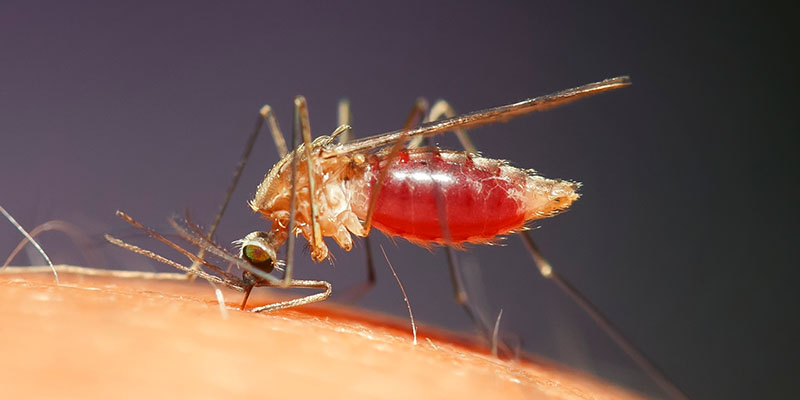The buzzing annoyance of mosquitoes is a familiar experience for residents of Florida, where the warm and humid climate creates ideal conditions for these pesky insects to thrive. But when exactly does mosquito season end in the Sunshine State?
When Does Mosquito Season End in the State of Florida?
This is an excellent question because as any resident personally knows, mosquitoes seem to be swarming around every single month of the year. Of course, there are times when they are much more prevalent, but these pests can also appear at any time. So, in this article, we’ll delve into the nuances of mosquito season in Florida, why mosquitoes are present year-round, the fluctuations in mosquito populations, efforts to control them by the state and local governments, and the advantages of seeking professional pest control services.
The Ever-Present Challenge
Mosquito season in Florida is a long one. Mosquitoes are present year-round, but they are most prominent during the warm, wet months of spring and summer. The peak mosquito season in Florida is typically from May to October. However, mosquitoes can still be active in the winter, especially in southern Florida.
There are a few reasons why mosquitoes are present all year in Florida. First, the state has a warm climate that is ideal for mosquito breeding. Mosquitoes need standing water to lay their eggs, and Florida has plenty of that. Second, Florida has a lot of rain, which also contributes to mosquito breeding. Third, Florida is home to a variety of mosquito species, some of which are more active than others.
You’ve probably noticed the mosquito population grows during certain times of the year and then dwindles. This is due to a number of factors, including temperature, rainfall, and the availability of food sources. Mosquitoes are most active when the temperature is warm and there is plenty of standing water. When the temperature drops or the water dries up, the mosquito population will decline.
Unlike some other regions, mosquito season in Florida is not limited to a specific timeframe. Due to the state’s favorable climate, mosquitoes can be active year-round. However, there are periods when their presence becomes more prominent and when their populations peak.
Fluctuations in Mosquito Populations
Of course, there are certain times when mosquitoes are more of a problem and periods when they don’t seem to be flying about. With that being said, here is a quick breakdown of mosquito population fluctuations…
Warm Months
Mosquito activity is most noticeable during the warmer months, from spring to fall. Increased temperatures and rainfall provide optimal breeding conditions.
Rainy Season
The rainy season, typically from June to September, leads to standing water, which is essential for mosquito breeding. This is when mosquito populations tend to spike.
Cooler Months
While mosquitoes are present during cooler months, their activity and reproduction slow down. Lower temperatures and reduced breeding sites lead to fewer mosquitoes.
State and Local Efforts to Reduce Mosquito Populations
The state and local municipal governments in Florida play a crucial role in reducing mosquito populations to minimize the risks associated with mosquito-borne diseases and improve the overall quality of life for residents. Here are some common efforts and strategies they employ to control and manage mosquito populations:
Surveillance and Source Reduction
The Florida Department of Health and local mosquito control districts conduct regular monitoring to track mosquito populations, identify species, and assess disease risk. Eliminating stagnant water sources through public education campaigns and local initiatives helps prevent mosquito breeding.
Larviciding and Aduliticiding
Treating mosquito larvae in breeding sites with larvicides reduces their development into adult mosquitoes. When mosquito populations become a health concern, targeted insecticide applications are used to control adult mosquitoes.
Integrated pest management (IPM)
This is a comprehensive approach to mosquito control that combines source reduction, larvicide treatment, adulticide treatment, and other methods. IPM is the most effective way to control mosquitoes and protect public health.
Public Education and Community Engagement
Informing residents about mosquito prevention measures and the importance of eliminating breeding sites is crucial. Collaboration between government agencies, local communities, and pest control professionals enhances mosquito control efforts.
What You Can Do
In addition to these government-led efforts, there are a number of things that individuals can do to reduce the mosquito population around their homes. These include:
- Empty standing water from containers around your home.
- Repair leaky pipes.
- Drain ditches and swamps.
- Use mosquito repellent when you are outdoors.
- Wear long sleeves and pants when you are outdoors at dawn and dusk when mosquitoes are most active.
- Keep your yard clean and free of debris.
- Plant mosquito-repelling plants, such as citronella and lavender.
But, please keep in mind these steps can only go so far. Sure, you can and should do all of them. However, these methods don’t actually treat the source of the problem. For that, you’ll need to turn to individuals with real-world experience in dealing with all kinds of pests.
Benefits of Professional Pest Control Services
If you are concerned about mosquitoes in your home, you may want to consider hiring a professional pest control service. A pest control professional can help you to identify and eliminate mosquito breeding sites around your home. They can also apply mosquito repellents and insecticides to help keep mosquitoes away.
- Customized approach. Professional pest control services offer tailored solutions based on the specific mosquito species and conditions in your area.
- Expertise. Pest control experts have in-depth knowledge of mosquito behavior, breeding habits, and effective control methods.
- Safe and effective treatments. Professionals use approved insecticides and techniques that are both safe for residents and effective in reducing mosquito populations.
- Year-round monitoring. Pest control services provide ongoing monitoring and treatment to address fluctuations in mosquito activity throughout the year.
- Comprehensive solutions. Professional services often offer comprehensive pest control packages that address other common pests, providing overall protection for your home.
And, let’s not forget, these service providers offer real peace of mind. Knowing that your property is being treated by experts offers peace of mind, allowing you to enjoy your outdoor spaces without the constant threat of mosquitoes.
Summing It Up
In Florida, mosquito season doesn’t have a definitive end due to the state’s climate, which facilitates mosquito activity year-round. However, there are periods when mosquito populations are more prominent, primarily during warm and rainy months.
State and local efforts, combined with professional pest control services, offer effective strategies for managing mosquito populations and reducing their impact on residents. By staying informed, following preventive measures, and considering professional pest control, Floridians can navigate mosquito season with greater comfort and peace of mind.

